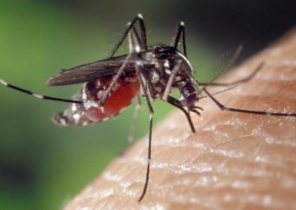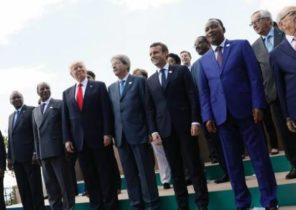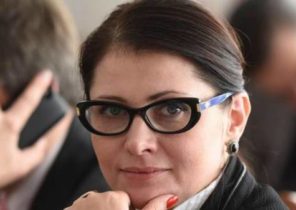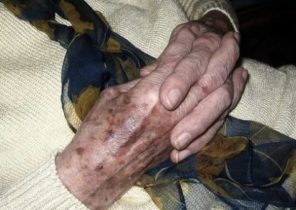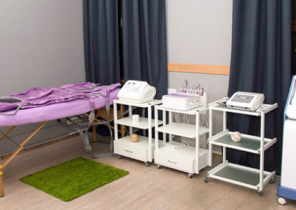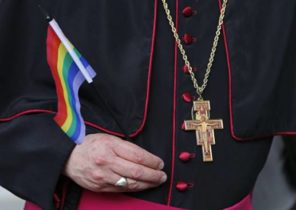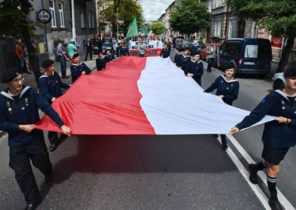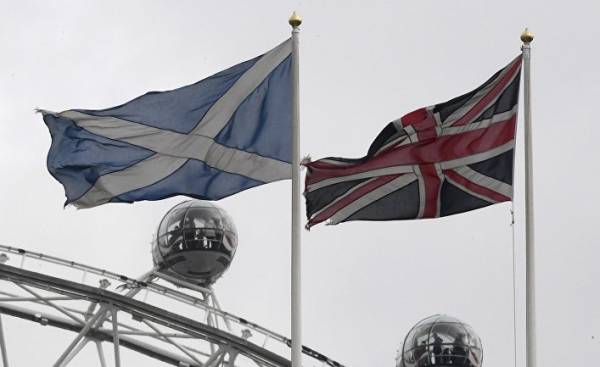
There is no person whom the decision of Nicola Sturgeon (Nicola Sturgeon) to hold a second referendum on Scottish independence would have pleased more than the President of Russia Vladimir Putin.
In public, the Russian leader likes to speak lightly of the UK, calling it “a small island no one pays attention,” he said during a diplomatic squabble with David Cameron (David Cameron) because of the war in Syria. However, outside of public space, the Russians know perfectly well that represents Britain, and also the fact that it serves as the main pillar of NATO and the Transatlantic Alliance.
In General, troops that Britain sends to Estonia in support of the mission of NATO to deter Russian aggression in Eastern Europe, are relatively small: the existing contingent is a tactical group of 500 people. However, in sending the British military to the Baltic States sounds clear, strong signal that, despite accelerated training Britannia Bracito, leaving the EU will not affect her role as a leading member of NATO.
In contrast, after causing uncomfortable messages about reducing defence spending in other European countries-members of NATO (e.g. France and Spain), Britain, most likely, will long retain its position as an outstanding European military power.
Russia also soberly assesses the importance of British strategic partnership with the United States, which is likely during the administration of the tramp only get stronger. Close cooperation between the two countries on the nuclear deterrent, intelligence, and military operations means that Britain is at the forefront of the action, the purpose of which is to prevent further in Europe any of the steps of Putin, similar to the capture of the Crimea.
Therefore, there’s nothing the Russian leader wanted more than the lowering of the status of Britain as the leading power in matters of defence and security. Russia, of course, finds that the effectiveness of the national security of Britain will be severely compromised in that case, if the Scottish national party will succeed in its attempt to separate Scotland from remaining part of the United Kingdom.
In the formation of an independent Scotland, the most serious loss will be a network of military bases that protected Britain from Russian threat from the North flank. Among these bases, Faslane, operations center on the West coast of Scotland, which houses a fleet of submarines “Vanguard”, capable of carrying nuclear weapons system Trident.
One of the options that the heads of military departments carefully studied during the time of the referendum of 2014, was to move the fleet Trident to Devonport in Plymouth. However, it will take decades, and will also make the upgrade Trident expensive for another three and a half billion pounds.
The discussion was made for the issue of the surrender of Scotland base rent in the negotiations on independence. However, it is difficult to imagine how a biased activists like Mrs. Sturgeon, can go for this deal, did not hear in your address accusations of gross hypocrisy.
Regardless of the fate of faslane base, the establishment of an independent Scotland will only exacerbate the collapse of the military infrastructure of Britain, as London will have to review agreements on non-nuclear defence for air defence, surveillance of Maritime space, radar and rescue people at sea using the aircraft.
There is also the possibility that any discussion of the future of the Faslane base will cause in the rest of Britain, the expansion of the debate about the preservation of their own nuclear deterrent. This, in turn, will create tension in relations with Washington, which wants Britain retains its nuclear weapons Arsenal.
We brought some of the most practical examples of how Scottish independence could weaken the defense of the UK but in the calculation you must take and the type of relationship that an independent Scotland could develop with the Kremlin.
Senior members of the Scottish national party made no secret of his admiration for Putin’s Russia, which best reflects short-sighted remark, uttered by the former party leader Alex Salmond (Alex Salmond) in 2014. He said that Mr. Putin is worthy of admiration for the return of Russians self-esteem due to the annexation of the Crimea.
Since then, the love of the Scottish national party to the Kremlin intensified to the point that the Scottish government has allowed the Russian news Agency Sputnik to open in Central Edinburgh office from which it conducts its propaganda war against the rest of the UK.
All this implies that in the case of the Scotland independence Scottish national party will not oppose the fact that their country was used as a reference point for further attacks on the remaining territory of the UK.
MS Sturgeon and her supporters from the Scottish national party would like us to believed that the goal of their campaign for the independence of Scotland is to defend their democratic rights. However, behind this facade lies a grim task — the destruction of the UK as one of the largest world powers.
Sarcastically anti-British agenda of the Scottish national party, of course, is one of the factors that Teresa Mei (Theresa May) and her Ministers will have to take into account when they will enter into another battle with the nationalists in the referendum. Otherwise, Mr. Putin would indeed be able to boast that Britain has turned into a small meaningless island.
